The gorgeous lion’s mane mushroom is impossible to miss: with its flowing strands and cream-colored hue, it’s no wonder why this medical and gourmet mushroom has been admired for centuries. With its long list of benefits for both your brain and body, lion’s mane mushroom is a great addition to your diet and lifestyle.
But how do you make lion’s mane tincture, and how can you make it at home?
What is lion’s mane tincture?
A lion's mane tincture is a liquid extract made from the fruiting body of the lion's mane mushroom (Hericium erinaceus). It is typically made by soaking chopped or powdered lion's mane mushroom in a solution of alcohol and water for several weeks, after which the liquid is strained and the resulting tincture is used as a dietary supplement.
Some people believe that lion's mane tincture may have various health benefits, such as promoting cognitive function, reducing inflammation, and boosting the immune system.
A tincture isn’t restricted to mushrooms. Herbal tinctures have been utilized for thousands of years as natural remedies. It’s a concentrated extract that’s soaked in alcohol or steeped in hot water, like a tea.
In fact, lion's mane tea is one of the most popular ways to consume lion's mane medicinally. Here's a complete guide to making lion's mane tea at home.
The U.S. Food and Drug Administration considers most tinctures today as supplements, and the research on their benefits is ongoing.
Lion’s mane tincture can be found online, but did you know that you can also make it at home? We’ll walk you through the pretty simple process so you can have your own jar-fulls of this wonderful mixture!
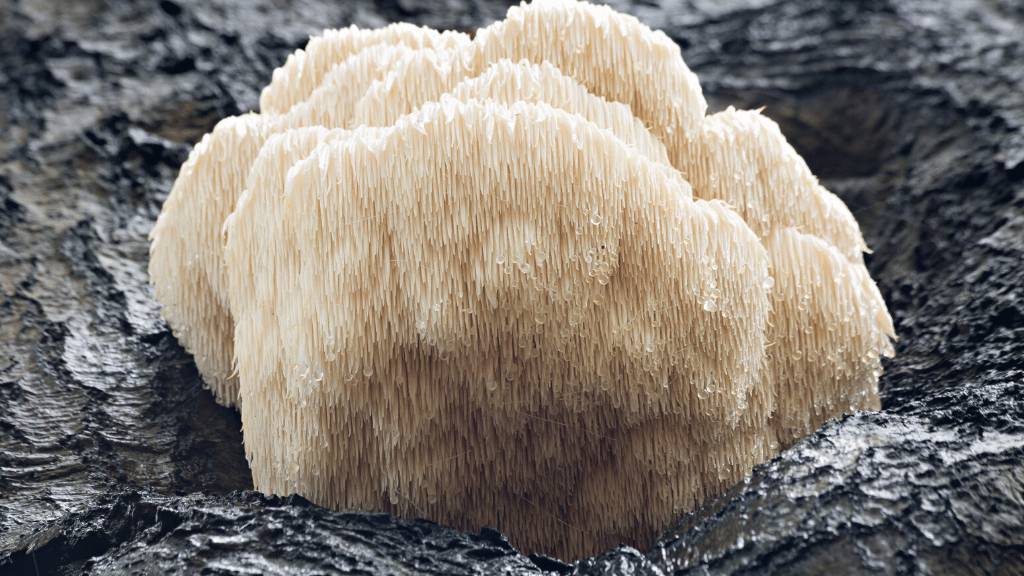
What is lion’s mane tincture used for?
Some potential benefits that are associated with taking lion's mane tincture include:
-
Promoting cognitive function: Some studies suggest that compounds in lion's mane mushroom may be able to promote nerve growth and improve memory and learning.
-
Reducing inflammation: Lion's mane mushroom contains compounds that may have anti-inflammatory effects.
- For anxiety and depression: There is limited research to suggest that taking lion's mane may support treatment for anxiety and depression. Check out our guide to lion's mane for depression to learn more.
- Tinnitus: There is very limited research (most of which is anecdotal) to support the use of lion's mane for tinnitus. Learn more about lion's mane for tinnitus.
-
Boosting the immune system: Some studies have shown that lion's mane mushroom can stimulate the immune system, helping to fight off infections and illnesses.
-
Improving cardiovascular health: Lion's mane mushroom may help lower cholesterol levels, blood pressure and reducing the risk of heart disease.
-
Anti-cancer properties: Animal studies have suggested that lion's mane mushroom may have anti-cancer properties.
-
Supporting gut health: Lion's mane mushroom has prebiotic properties which might help support gut health.
Head on over to our lion's mane benefit guide to learn more about the studies and potential benefits listed here.
It's important to note that most of the benefits mentioned above are based on preclinical studies and research on animals. Additional research on humans is needed to confirm these potential benefits. Also, Lion's Mane tincture is not an FDA-approved medicine, the uses and benefits of the product may vary among individuals, consult with a healthcare professional before taking it.
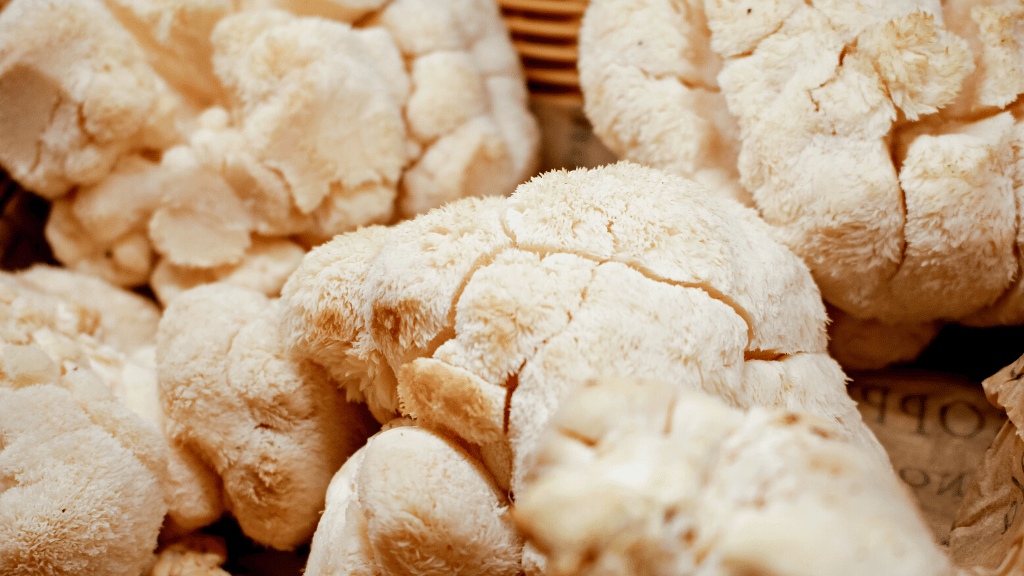
What are the types of lion's mane tinctures?
Lion’s mane tinctures differ from one another based on their extraction method: hot water, alcohol extraction, and dual extraction. Each of these methods can be done at home with various processes that don’t require much effort.
Hot water extraction lion's mane tincture recipe
Lion’s mane tincture via hot water extraction is simple if you’re looking to get your tincture fix quick. The hot water releases the beta-glucans and triterpenoids into your body. This is a great option when you’re in a pinch because you can get the majority of the benefits from lion’s mane, but with a bit of a drawback–hot water extraction loses out on some key benefits.
With the hot water extraction method, you are essentially making a tea, so the steps are easy to follow:
- Heat some water in a kettle
- While the water is preparing, chop your dehydrated lion’s mane
- Sprinkle your chopped lion’s mane into the water, and simmer for at least 30 minutes, and up to two days
- Pour/strain into a resealable glass jar and let cool
- Screw lid tightly, and store
An important detail to note about the hot water extraction method is that boiling your mushrooms will destroy the water-soluble compounds like the beta-glucans. Even though it’s a simple process, you’ll still want to keep an eye on your brewing tincture.
Alcohol extraction lion's mane tincture recipe
Don’t worry, you won’t get too crazy drinking from this alcohol extraction. The amount of alcohol is minimal, so it won’t have any effects similar to a few glasses of wine. This method is used to extract the soluble compounds that are not water like inositols, ergosterols, phenolics, and terpenoids.
While you can use your favorite liquor, we recommend using food-grade ethanol or high-quality vodka. This method is great for isolating water-insoluble components from the alcohol. Your body will absorb the alcohol quickly and the nutrients, making this a great option.
Recipe to make lion’s mane tincture via alcohol extraction:
- Fill a glass jar with lion’s mane, preferably dehydrated or powdered (couldn’t confirm this)
- Fill the jar with alcohol with some breathing room and screw the lid on
- Set aside three to eight weeks
- After the 3+ weeks have passed, pour the mushroom and alcohol into a saucepan
- With a 2:1 ratio, add twice the amount of water you used with the alcohol
- Cook in the saucepan on low to medium heat for 30 minutes
- Strain the lion’s mane from the alcohol and water, and repeat step 5
- Add the strained water into the saucepan and cook for another 30 minutes
- Remove the saucepan from the heat and let it cool
- Store in a heat-proof (preferably glass) jar
Your lion’s mane tincture should last for quite a while, even with daily consumption.
Dual extraction lion's mane tincture recipe
Now that we’ve learned that an alcohol extraction has different benefits than a hot water extraction, is it possible to combine them? Yes, it is! And it can also be done at home with a little bit of preparation. The alcohol extraction will come first, followed by the hot water process:
- Chop your dehydrated lion’s mane fruiting body into tiny pieces if it’s not already in powdered form
- Pour it into a glass jar
- Pour ethanol into the jar just enough to cover the mushrooms. Important! Write down how much alcohol you’ve used in this step because you will need to know later
- Wait it out–let your lion’s mane sit in the jar for three to eight weeks, shaking occasionally if you want
- After your lion’s mane has sat around for a few weeks, strain it and reserve the alcohol in another container
- Transfer the mushrooms to a saucepan and add the strained alcohol mixture with water, just like you did in step 3
- With a stick, measure the water level in the saucepan to see how much water has evaporated
- Double the amount of water you currently have in the saucepan with the same amount of water that you used in step 6
- Simmer the lion’s mane for a minimum of 30 minutes, or until the water has evaporated enough to the level it was previously when you measured it
- Some recipes recommend repeating this step for up to three days or straining the mushrooms and throwing the leftover fungi away
- Combine the hot water extraction with the alcohol extraction
- Let cool, and enjoy!
The Best Lion's Mane Tincture Brands
Don't want to make your own lion's mane tincture at home? Then choosing a great brand might be the choice for you. Here at Remeday, we research brands extensively for quality, 3rd party testing, ingredients, and more. We only recommend brands that we've used ourselves and would recommend to family and friends.
Check out these incredible tincture brands:
Life Cykel Lion's Mane Tincture
We love this brand for a number of reasons. We've been using them personally for quite some time. Because they're a relatively small company, they're hyper focused on sourcing, quality, and top-notch ingredients. 
Rainbo Lion's Mane Tincture
If you're looking for top-notch quality with a great brand to back it, Rainbo is for you. The perfect tincture for those looking for potency and quality. While Rainbo may come with a slightly higher price tag than some other tinctures, this brand has the quality to support it.
Mushroom Revival Lion's Mane Tincture
There are more than just a few reasons to love Mushroom Revival. As a small US-based company, they are not only focused on creating great products, but also educating the mushroom community with their incredible Mushroom Revival Podcast. 
Still want to make your own? We don't blame you!
Making your own tincture allows you to hyper-focus on quality, quantity, ingredients, and the preparation process. Not to mention, you might be saving quite a bit of money by making your own.
Here are some of the most frequently asked questions about making lion's mane tincture at home:
Do I need to dehydrate mushrooms before using them in a tincture?
It is common practice to dry mushrooms before using them to make a tincture. Drying mushrooms helps to reduce their moisture content, which in turn can help to preserve the mushroom's active compounds and improve the shelf-life of the tincture.
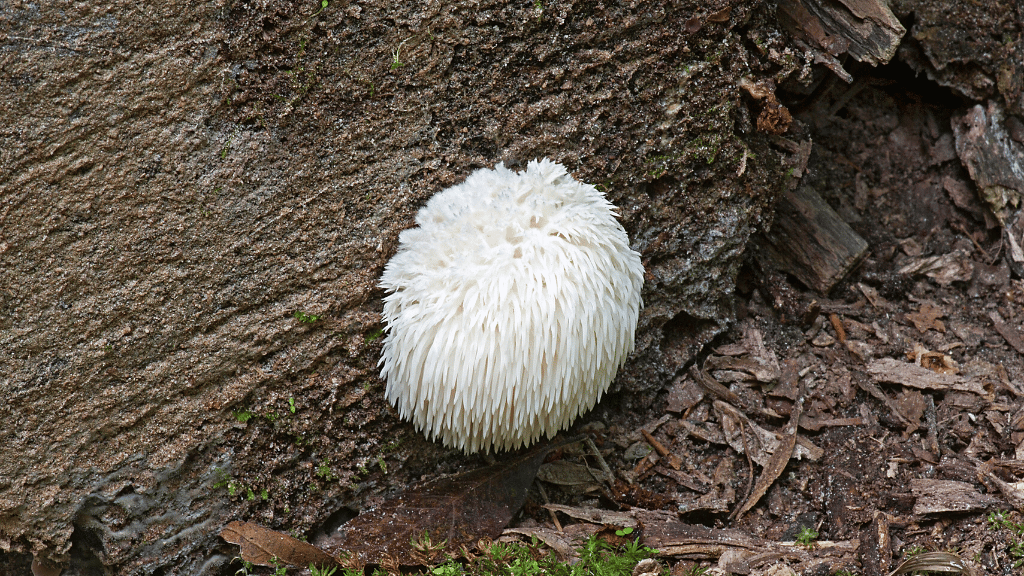
Tips on drying your lion's mane mushrooms
The process of drying mushrooms can be done in a dehydrator, in the oven on the lowest setting, or simply hanging them in a dry and well ventilated place, this will depend on the size, shape and type of mushroom. Drying can take from a few hours to a few days, depending on the mushroom and the drying method used.
Once the mushrooms are dry, you can then chop or powder them and use them to make a tincture by soaking them in alcohol and water for several weeks. The resulting tincture can then be used as a dietary supplement.
That being said, it's not always necessary to dry mushrooms before making a tincture, some people use fresh mushrooms as well. It will change a little bit the process but it is still possible to make a tincture with fresh mushrooms. They would need to be chopped or powdered and then soaked in alcohol and water for longer time (usually several weeks) until the alcohol has extracted the desired compounds.
For any lion’s mane tincture recipe, you will need a batch of dehydrated mushrooms. Dehydrating them preserves them for a longer amount of time and allows you to access the full range of nutrients.
Additionally, since mushrooms don’t grow year-round, you may loose the ability to forage for them at certain times of the year. This is a great way to keep them on hand. You can check out our great guide on dehydrating mushrooms here.
Easy ways to add lion’s mane to your routine
Interested in adding lion’s mane to your daily routine? It’s super simple! There are a few methods so it comes down to your preference.
You can add a few drops to your daily cup of coffee or tea, your morning smoothie, or take it under your tongue. If you’re short on mushrooms and want to incorporate the benefits into a recipe, feel free to drop some tincture into any dish.
And because such a minimal amount is used, your jars of tincture will last for several months.
We put together a collection of gourmet lion's mane recipes is you want to learn more!
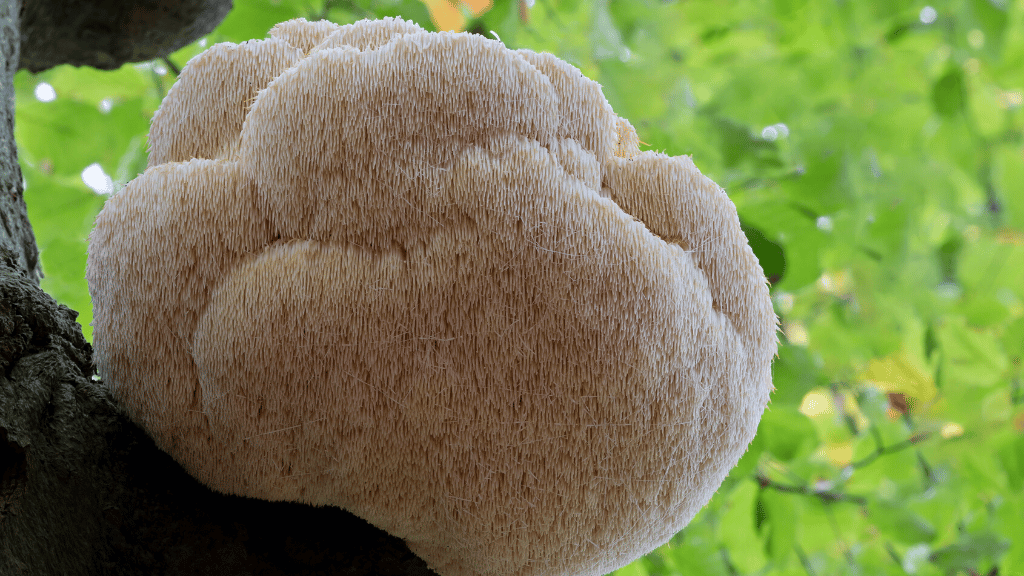
How much lion’s mane tincture should you take?
An important question you might have is, how much lion’s mane tincture should you take? Glad you asked! The dosage specific to you actually depends on a few factors such as your weight, age, sensitivity, and general health. For more information, check out our article.
A surprising but great benefit of lion’s mane mushrooms is that even when taken at high doses, it doesn’t appear to cause any major side effects.
Some sources have claimed that gastrointestinal issues were reported, and one instance of a man needing to be hospitalized was recorded. Other than that, lion’s mane has had added great benefits to its consumers.
What is the best time of day to take lion's mane tincture?
There is no definitive answer as to the best time of day to take lion's mane supplements, as it can vary depending on the person and the specific supplement they are taking. However, here are a few general guidelines that may be helpful:
-
Take it with a meal: Some people find that it is easier to tolerate the supplement when it is taken with food. It may help to prevent stomach upset or nausea.
-
Take it at bedtime: Some people may find it helpful to take the supplement at bedtime because it may help to promote relaxation and improve sleep quality.
-
Take it in the morning: Some people may find that taking the supplement in the morning can help to improve cognitive function and energy levels throughout the day.
It's important to consider your personal schedule, lifestyle and goals. It may be helpful to experiment with different timing to find the best time for you to take your lion's mane supplement that work best for you.
It's also important to note that if you're taking other medications or supplements, you should speak with your doctor or a healthcare professional to see if there are any interactions or contraindications. They may recommend a specific time or dosage that works best for you.
Lion’s mane is a wonderful mushroom that can improve your health with daily consumption. It’s not always possible to create a gourmet meal with mushrooms, so opting for some drops of tincture is a great way to boost your body in a manner of seconds. This mushroom is so versatile, and you can even grow it at home! Do you have any unique ways of using your lion’s mane intro? Let us know!



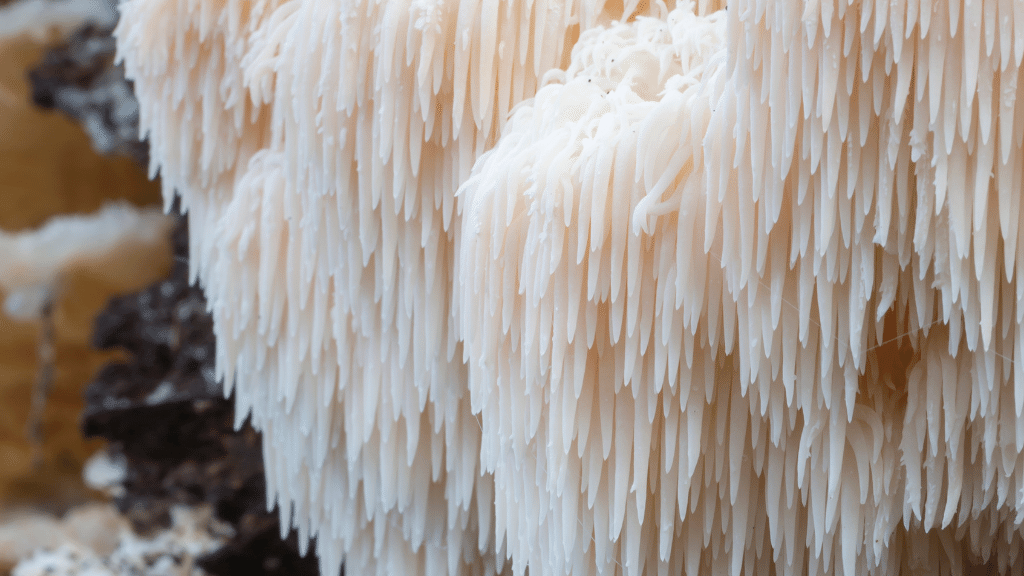
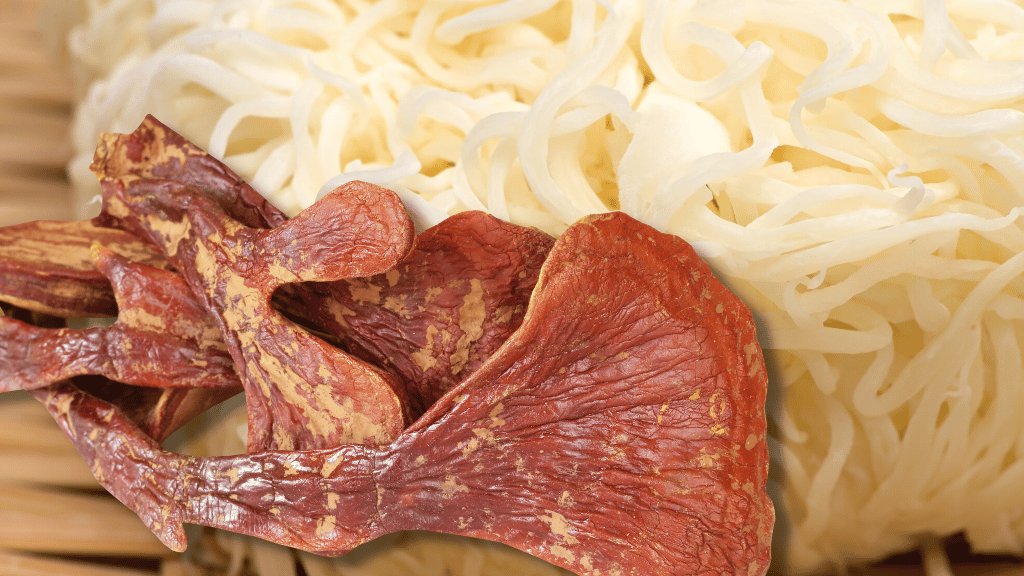


.png)
